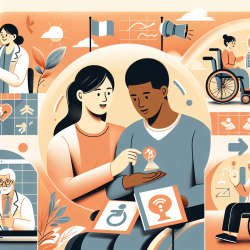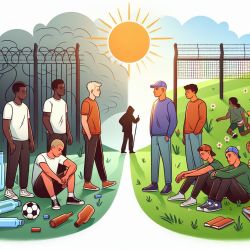As practitioners working with athletes who have intellectual disabilities, understanding how to enhance their satisfaction with life is paramount. A recent study titled "Satisfaction with life in Special Olympic athletes: the role of autonomy support and basic need fulfilment" provides valuable insights into this topic. The research, conducted by Sophie Komenda and colleagues, reveals the importance of an autonomy supportive sport climate (ASSC) in boosting life satisfaction among Special Olympics athletes.
Here are some key takeaways and practical applications from the study to help you improve your skills and support your athletes more effectively:
1. The Power of Autonomy Support
The study found that athletes who perceived higher levels of autonomy support from their coaches reported greater satisfaction with life. Autonomy support involves:
- Encouraging athletes to make choices and decisions.
- Involving athletes in goal-setting and planning.
- Providing positive and constructive feedback.
As a practitioner, fostering an autonomy supportive environment can significantly enhance your athletes' sense of competence and overall well-being.
2. Focus on Competence
The research highlights that the relationship between ASSC and life satisfaction is fully mediated by perceived competence. This means that athletes who feel more competent in their sports activities are likely to experience higher life satisfaction. To boost competence:
- Provide regular, specific, and positive feedback on their performance.
- Set achievable and progressively challenging goals.
- Celebrate their achievements, no matter how small.
3. Implementing the Findings
To apply these findings in your practice:
- Create a supportive and encouraging environment where athletes feel valued and heard.
- Incorporate athletes' preferences and choices into training sessions.
- Focus on building their skills and recognizing their progress to enhance their sense of competence.
Encouraging Further Research
While this study provides a solid foundation, ongoing research is crucial. Explore different strategies and interventions that could further enhance the autonomy support and competence of athletes with intellectual disabilities. Collaborate with colleagues, share insights, and contribute to the growing body of knowledge in this field.
By implementing these strategies, you can help your athletes achieve higher satisfaction with life and overall well-being. Remember, the impact of your support goes beyond the sports field; it shapes their confidence and happiness in everyday life.
To read the original research paper, please follow this link: Satisfaction with life in Special Olympic athletes: the role of autonomy support and basic need fulfilment.










